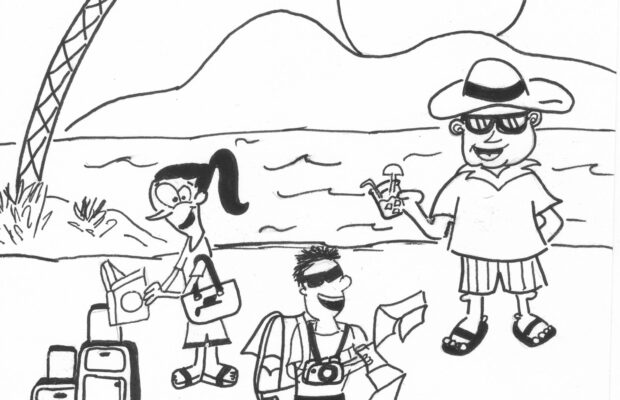Hawaii welcomes tourists at the expense of locals

Since Hawaii became a U.S. state in 1959, it has consistently been one of the most popular tourist destinations. While tourism is vital to the economy and the lives of many long-time Hawaii residents, the pollution it has caused can be observed as a cause of the recent Maui wildfires. A way to possibly reduce the effects of tourism on Hawaii is to be aware of how the waste production and water consumption of tourism affects the islands.
Despite the fact that tourism is a major industry in Hawaii and provides a significant number of working people in Hawaii with jobs, there are definitely negative aspects to it that I would argue should be taken into consideration with more urgency than they currently are.
One negative aspect includes the ongoing water crisis in Hawaii. The water use of restaurants, hotels and entertainment activities have contributed to the contamination of natural bodies of water, resulting in water shortages for the environment and the homes of locals. Locals should not have to limit their water usage to accommodate for the excessive water consumption of the tourism industry.
In addition to the environmental damage, tourism has also caused the cost of living in Hawaii to become one of the highest in the country. Many residents have been unfairly pushed out of their land and homes due to corporations and overcrowding.
Though a homestead program called the Hawaiian Homes Commission Act can help native Hawaiians reclaim their land, many people who receive homes are not financially able to continue owning the homes, which is especially frustrating. Many locals that work for businesses owned by non-locals are underpaid, and while this is mostly true in the tourism industry, Hawaii has become unlivable for some native Hawaiians.
After the Maui wildfires, tourists have been discouraged from visiting Hawaii, but tourism remains active on the unaffected islands. There were multiple factors involved in the cause of the fires including underlying ones, such as worsening drought conditions, pollution and other environmental damage caused by tourism.
Some residents of West Maui were initially frustrated that they had received far more help from local organizations and volunteers than they did from the government, but they did eventually receive funds for housing and assistance.
While tourism in Hawaii is not an active emergency, it is a perpetual issue that currently does not have any federal programs or solutions in place. Some residents feel tourists should stop visiting the islands completely, while some hope tourists will come with knowledge about their history and their culture, as well as appreciating and respecting the islands and the people. And most importantly, tourists should actively strive to help the islands of Hawaii and their people heal.
This could be done by traveling sustainably, patronizing small, locally owned businesses and abiding by moral standards with regard to local customs and the environment.
